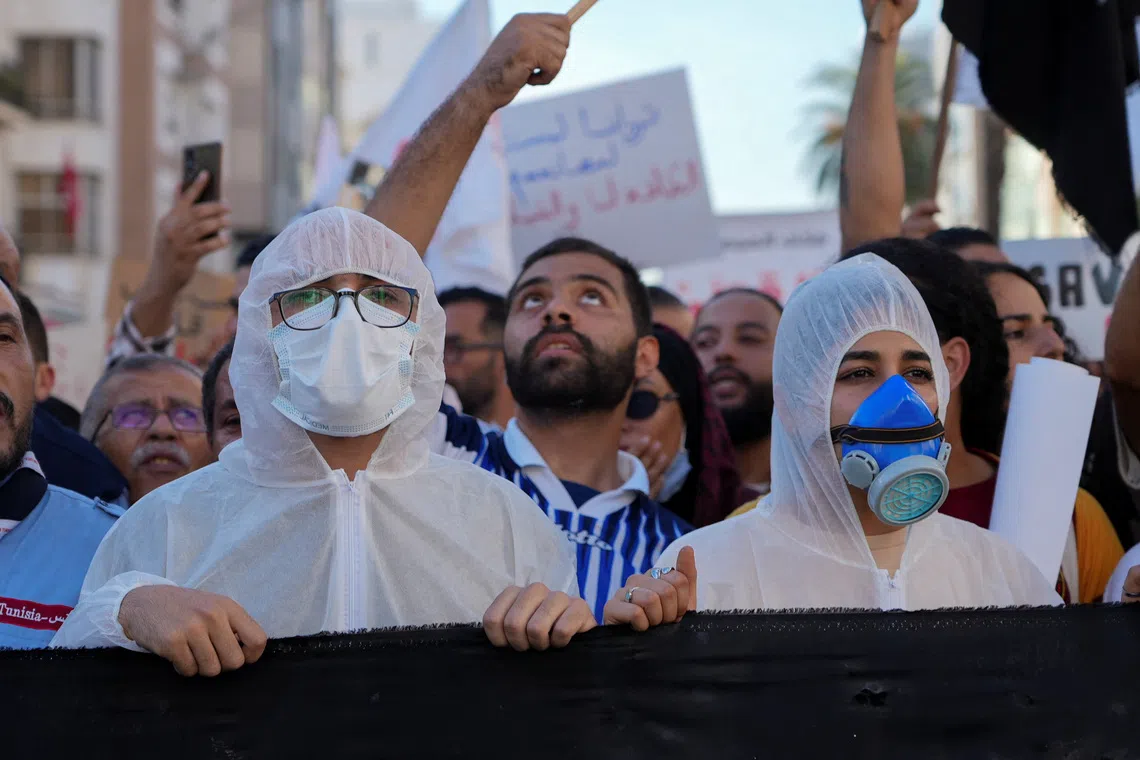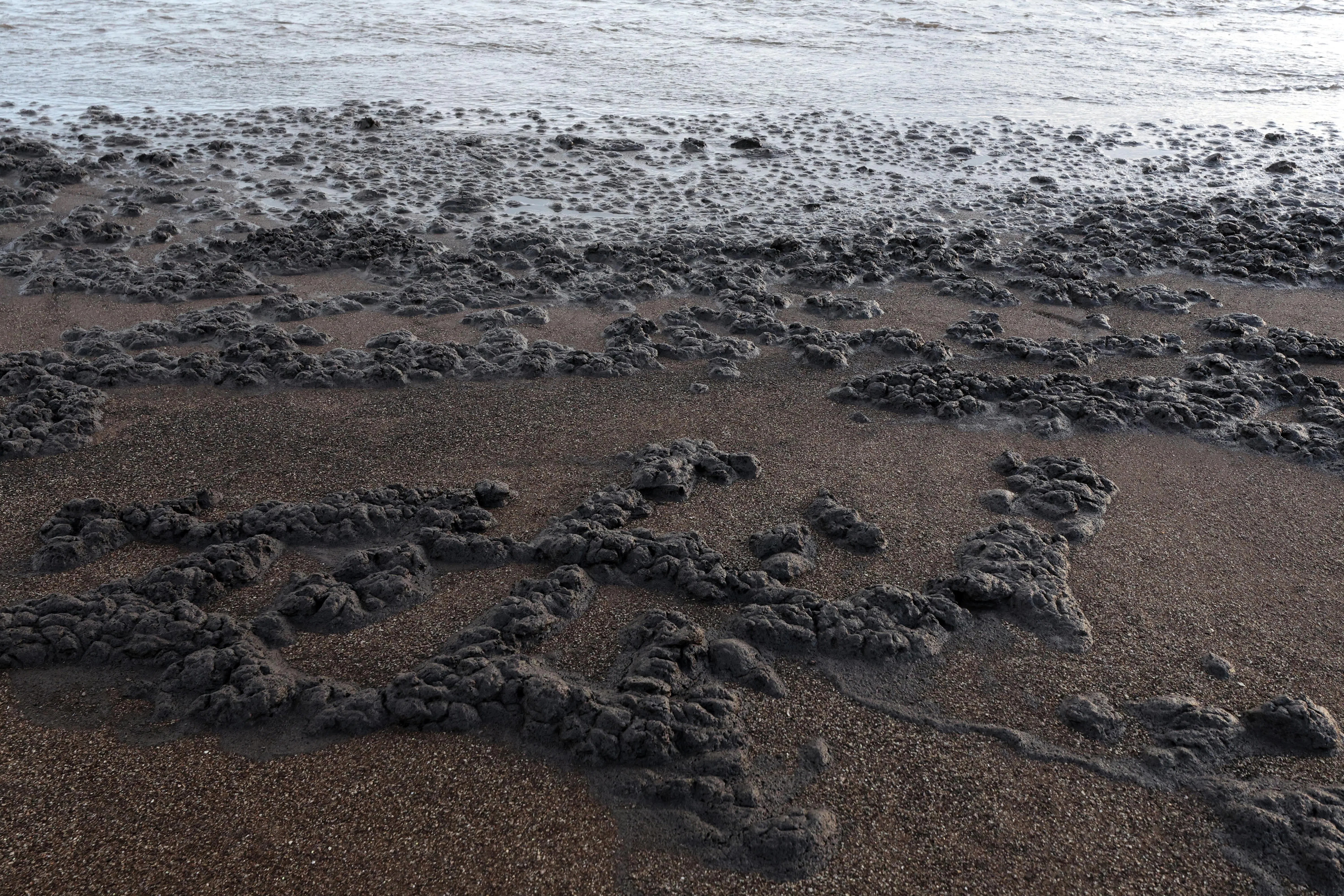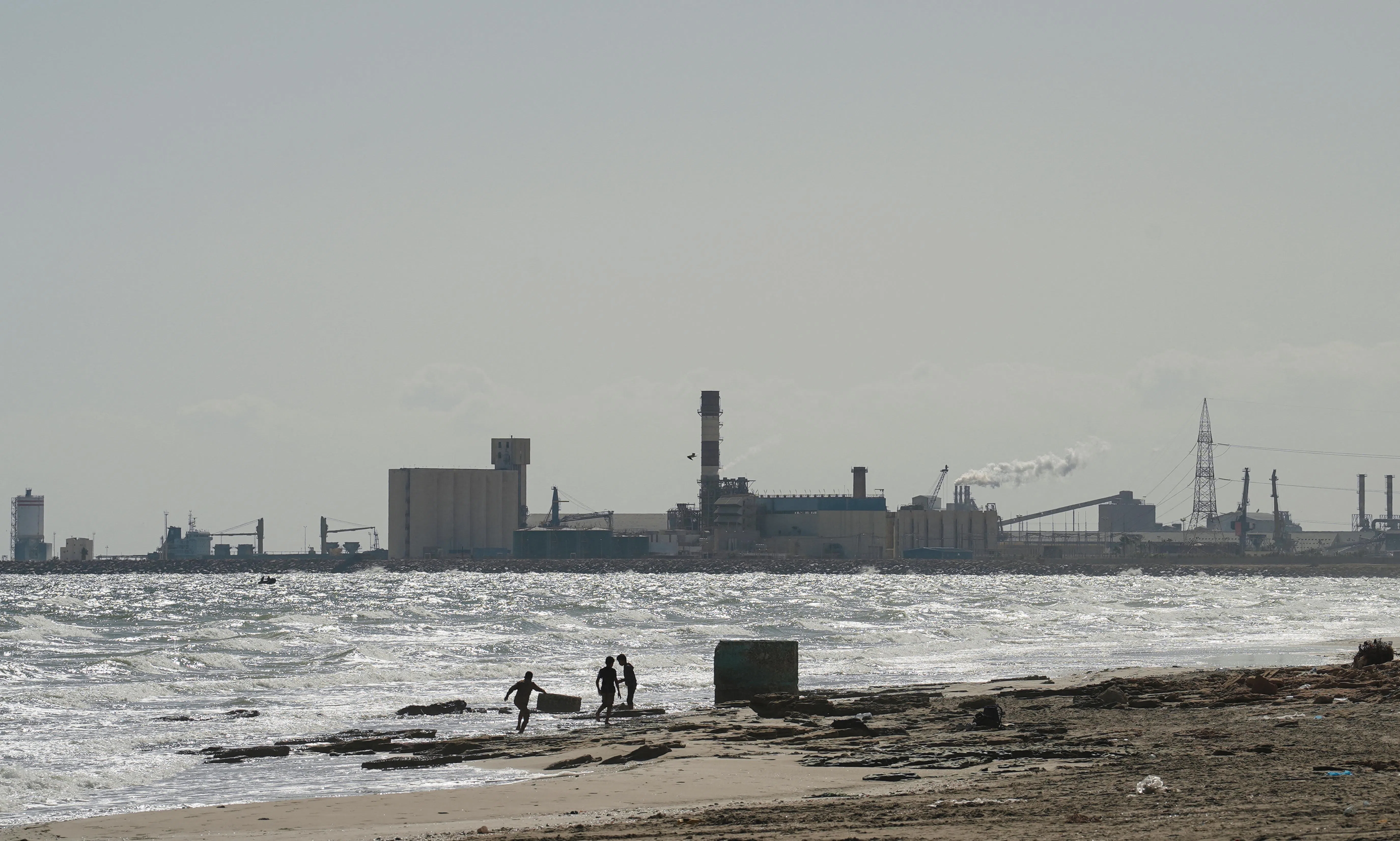Hundreds protest in Tunisia’s capital over worsening state chemical plant pollution crisis
Sign up now: Get ST's newsletters delivered to your inbox

Demonstrators marching through Tunis on Oct 25 over the pollution emitted by a state chemical plant in the southern Tunisian city of Gabes.
PHOTO: REUTERS
- Tunisians protested in Tunis against pollution from a state chemical plant in Gabes, where residents report health issues.
- Protests escalated after schoolchildren suffered breathing difficulties, with demonstrators demanding permanent closure of polluting facilities.
- President Saied called the situation an “environmental assassination” and promised repairs and a cancer hospital, but protesters want relocation.
AI generated
TUNIS – Hundreds of Tunisians marched through the capital Tunis on Oct 25 to protest a severe environmental crisis caused by pollution from a state chemical plant in Gabes, as protests that began there widened outside the southern city.
The protest is the latest in a series of demonstrations that have underscored growing public frustration over the government’s handling of pollution and worsening state of public services, marking the biggest challenge to Tunisian President Kais Saied since he seized all power in 2021.
Residents of Gabes have reported rising rates of respiratory illnesses, osteoporosis and cancer, which they blame on toxic gases from the state chemical group’s phosphate plants, which dump thousands of tonnes of waste into the sea daily.
The latest wave of protests in Gabes was triggered in October after dozens of schoolchildren suffered breathing difficulties caused by toxic fumes from a plant that converts phosphates into phosphoric acid and fertilisers.
Protesters in Tunis carried banners and chanted slogans in solidarity with residents of Gabes, calling the response of the authorities “repression”.
The government said it arrested people for violence.
“It’s that simple, the people of Gabes want to breathe,” Stop Pollution campaign protester Hani Faraj told Reuters.
“Gabes is dying slowly... We will not remain silent. We will escalate our peaceful protests.”
Mr Saied’s administration fears protests in the capital could spark unrest elsewhere in Tunisia, deepening pressure as it struggles with a prolonged economic downturn and political instability.

Chemical plant waste, seen on Oct 17, which flowed into the Mediterranean Sea off the southern Tunisian city of Gabes.
PHOTO: EPA
Mr Saied has described the situation in Gabes as an “environmental assassination”, blaming criminal policy choices by a previous government.
In an effort to quell the protests, he has called for repairs to the industrial units to stop leaks as an immediate step.
Tunisian Health Minister Mustapha Ferjani said this week the government would build a cancer hospital in Gabes to deal with rising cases.

Children playing on the beach on Oct 16 with the Tunisian Chemical Group’s phosphate complex in the background in Gabes, Tunisia.
PHOTO: REUTERS
However, protesters have rejected the fixes as temporary, and are demanding the polluting facilities be permanently shut and relocated.
Environmental groups warn that tonnes of industrial waste are discharged daily into the sea at Chatt Essalam, severely damaging marine life.
Local fishermen have reported a sharp decline in fish stocks over the past decade, threatening a vital source of income for many in the region. REUTERS


